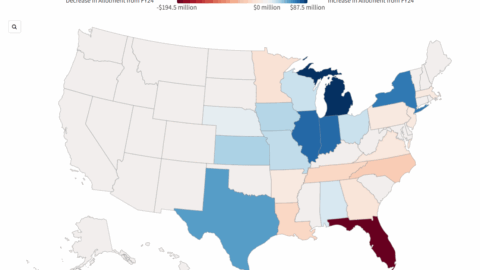Wisconsin on the verge of taking an important step to replacing its lead pipes
Tom Neltner, J.D., is Chemicals Policy Director
In 2012, Madison, Wisconsin became the first city in the country to fully eliminate its lead service lines (LSLs), the lead pipes that connect the drinking water main under the street to interior plumbing. The project to replace its 8,000 known LSLs began in 2000. The City’s effort is a model of persistence and common sense as it overcame many barriers including challenges with the Public Service Commission of Wisconsin (PSC).
The PSC blocked the use of rates paid by customers to fund replacement of lead pipes on private property. The PSC, whose mission is to ensure adequate and reasonably priced water service, was concerned that customers without LSLs would be subsidizing improvements to the property of those with LSLs. Unlike most state commissions which are responsible for utilities operated by private companies, PSC approves rates for municipal and private utilities. Eventually, Madison used a different source of funding for its $15.5 million LSL replacement program.
Currently, the Wisconsin State Legislature is on the cusp of passing legislation to remove this barrier faced by Madison and empower communities to better protect residents from lead in drinking water. SB-48, introduced by Senator Cowles (R-Green Bay) and co-sponsored by Representative Thiesfeld (R-Fond du Lac), has passed both chambers. When the legislature returns to session in January 2018, they will need to resolve a difference between the two versions regarding the maximum amount of financial assistance allowed to homeowners. To hear from both authors on the legislation, check out the webinar from the National Conference of State Legislatures regarding financing options for replacing LSLs.
With passage of the legislation, Wisconsin would be the fourth state to pass essential legislation empowering communities to replace LSLs, using rates paid by consumers, joining Indiana, and Pennsylvania. They are among 12 states that have adopted administrative or legislative policies to support community LSL replacement. These states have an estimated 3.3 million of the nation’s 6.1 million LSLs.
Legislation takes support from many people. Beth Neary, a pediatrician representing University of Wisconsin Health and the School of Medicine and Public Health, as well as representatives of Sierra Club, League of Wisconsin Municipalities, Wisconsin Rural Water Association, and the City of Milwaukee provided comments in support of the legislation. In addition, Wisconsin Public Interest Research Group, the League of Conservation Votes, and Clean Wisconsin had important roles building grassroots support for the bill.
The version of SB-48 unanimously passed by the Wisconsin Senate gives utilities and the PSC a framework for accelerating LSL replacement. The law allows municipalities and private utilities to provide financial assistance to property owners to replace water service lines that contain lead that they own. The law does not explicitly define ownership but treats the portion of the line on private property as owned by the property owner and refers to it as a “customer-side water service line.”
The utility or municipality may only provide financial assistance if:
- The city, town or village has passed an ordinance:
- Authorizing the assistance; and
- Requiring each owner to replace customer-side water service lines that contain lead; and
- The utility-side water service line either does not contain lead or will be replaced at the same time as the customer-side; and
- The financial assistance is limited as follows:
- Grants are not more than 2/3 of the total cost to property owners;
- Loans to property owners are not forgivable; and
- Each owner in a class of customers are treated equally with respect to grants.
The PSC must grant approval after receiving a proposal from the utility if it finds that the proposal is “not unjust, unreasonable, or unfairly discriminatory” and is consistent with the requirements for financial assistance described above. If a public hearing is not needed, the PSC must act within 90 days of opening the docket and may grant itself a 90-day extension. If a public hearing is needed, it can take twice as long. If it does not act in time, the proposal is considered approved by the PSC.
The Wisconsin Assembly’s amendment to the Senate version restricted the financial assistance in two ways:
- Limiting grants to ½ rather than 2/3 of the total cost to property owner; and
- Requiring equal treatment for loans and not just grants.
The difference between the Senate and Assembly versions could have significant consequences, especially to low-income homeowners. We hope that, for the sake of the health of the children in the state, the legislature will give communities the authority they need to act. The state has an estimated 240,000 LSLs, and without this legislation, municipalities and utilities will continue to be hamstrung in their efforts to build and implement successful LSL replacement programs. Last year, the Wisconsin Department of Natural Resources stepped up by awarding $25 million in principal forgiveness loans to disadvantaged communities to replace LSLs on private property. The state legislature needs to complement this funding by passing SB-48.













